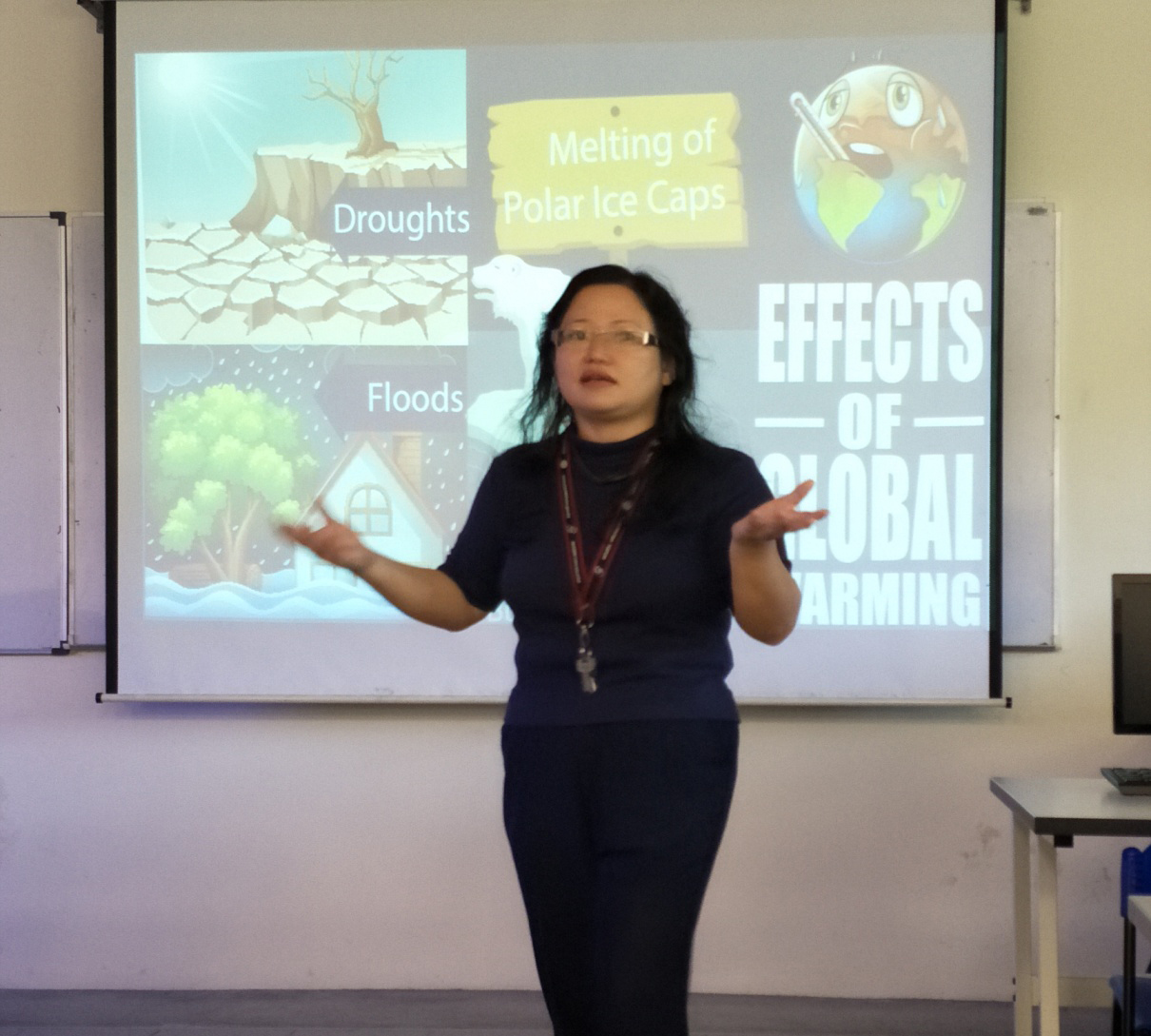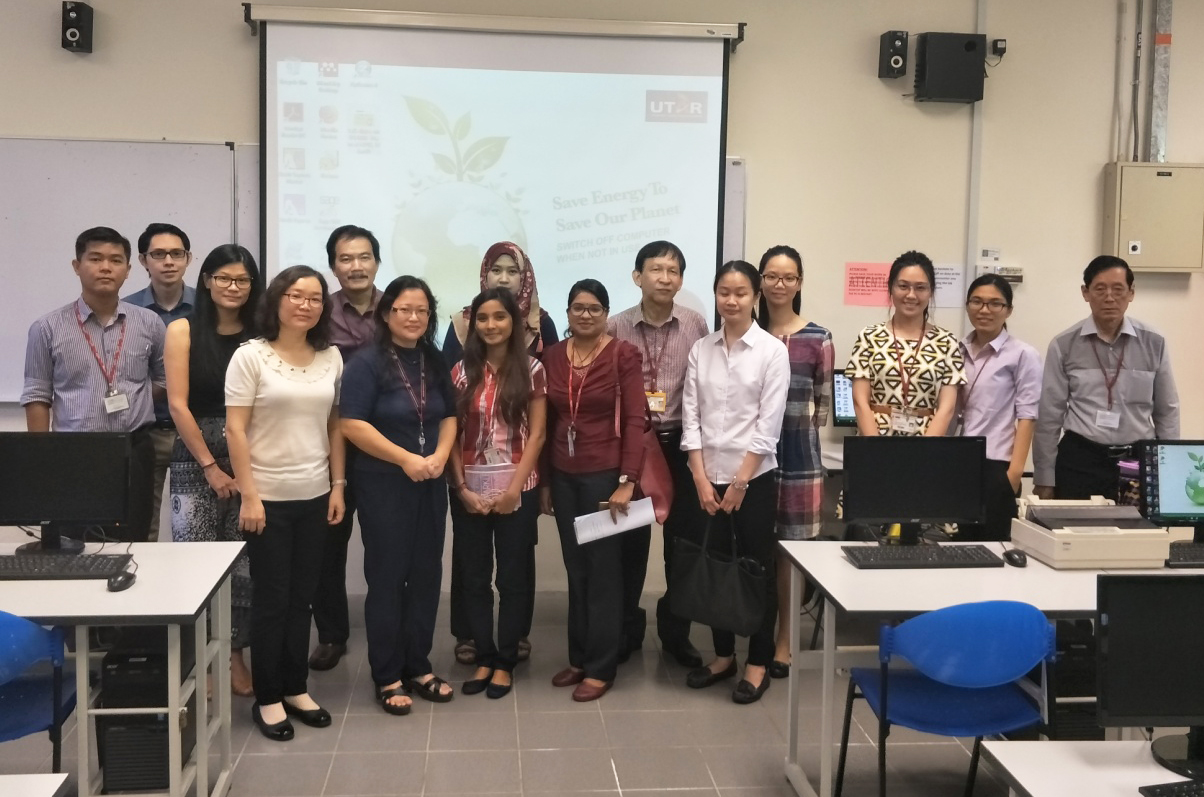

In addressing the issue of global warming, invited speaker and Deputy Director for Institute of Postgraduate Studies & Research (Kampar Campus) Dr Chong Yee Lee shared potential solution from her research, titled “Towards an understanding on the determinants of renewable electricity consumption in Malaysia”. The talk was organised by the Centre for Economic Studies (CES) on 17 January 2018, at the Kampar Campus.
The talk aimed to discuss the factors that could affect the consumption of renewable electricity in Malaysia by exploring the relationship between renewable electricity consumption, economic growth, Carbon Dioxide (CO2) emissions, foreign direct investment (FDI) and trade openness from 1980 to 2012. When Dr Chong explained the possibility of producing electricity using renewable sources, the participants gained understanding towards the consumption of renewable electricity in Malaysia that would be able to reduce the impacts of global warming.
She spoke about the global warming caused by the use of non-renewable sources. She also highlighted the negative impacts generated from the global warming which has now become more prevalent worldwide. On that note, she emphasised on the need for industries to use renewable sources, hence also reducing the dependency on fossil fuels to generate electricity.
“Electricity generated from fossil fuels produces CO2 emissions. It is causing rise to the pollution intensity in Malaysia. From 1970 to 2008, the rate of CO2 emission has risen by 4.7%. Experts believed that the pollution intensity of CO2 has increased threefold from the year 1999 to 2020. This is why we need to adopt cleaner energy sources or renewable sources, such as wind and solar power to reduce the CO2 emissions,” said Dr Chong.
Results from her research enabled the participants to understand that gross domestic product and FDI are positively related to renewable electricity consumption, while CO2 emissions and trade openness are negatively related to renewable electricity consumption. She also highlighted that economic growth is important for generating the sources needed for research & development (R&D) of renewable energy technologies and corresponding infrastructure. With that, the expansion of renewable energy sector is made possible.
According to Dr Chong, spillovers of technology and knowledge could happen due to the inflow of FDI. Also, a higher level of trade openness will increase the consumption of non-renewable electricity. Although trade in Malaysia has not contributed to the long-run development of the use of renewable electricity consumption, she still spoke of the recent relaxation of subsidy as an encouragement for industries to use more of the renewable sources for generating electricity.

Dr Chong explaining the effects of global warming

Front row, second from left: Dr Chong with the academic staff
![]()
© 2019 UNIVERSITI TUNKU ABDUL RAHMAN DU012(A).
Wholly owned by UTAR Education Foundation Co. No. 578227-M LEGAL STATEMENT TERM OF USAGE PRIVACY NOTICE